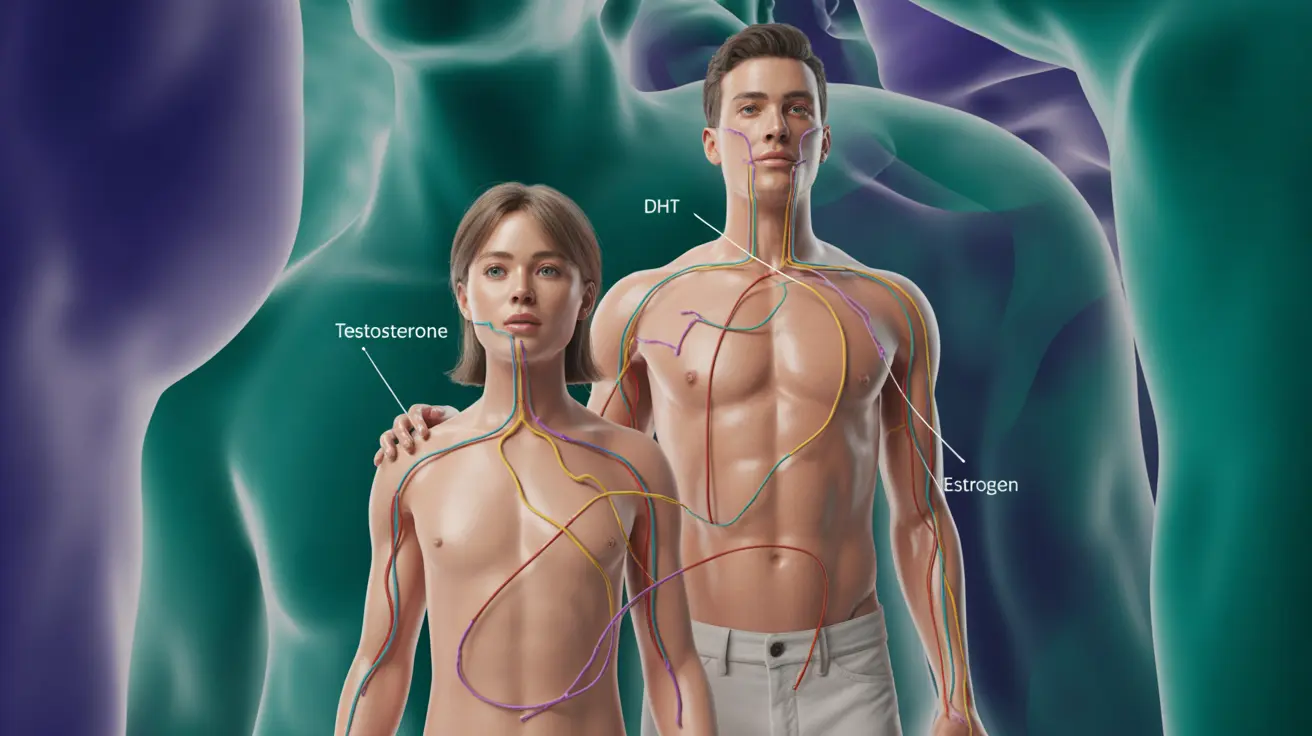Androgens are powerful hormones that play crucial roles in both male and female health, though they're often primarily associated with male characteristics. These important chemical messengers regulate everything from sexual development and reproductive function to muscle mass and bone density. While testosterone is the most well-known androgen, there are several others that contribute to overall health and development throughout life.
Understanding androgens is essential for anyone interested in hormonal health, as these compounds influence numerous bodily functions and can significantly impact quality of life when their levels become imbalanced. Let's explore the vital roles of androgens and their effects on human health.
The Basic Science of Androgens
Androgens are steroid hormones primarily produced in the testes for men and the ovaries and adrenal glands for women. These hormones are responsible for the development and maintenance of male characteristics, but they also serve important functions in female bodies. The main androgens include testosterone, dihydrotestosterone (DHT), androstenedione, and dehydroepiandrosterone (DHEA).
Key Functions of Androgens
Androgens serve multiple essential functions in the body:
- Male sexual development
- Muscle mass maintenance
- Bone density regulation
- Body hair growth
- Voice deepening during puberty
- Red blood cell production
- Libido regulation
- Mental health and cognitive function
Androgens in Male Health
In males, androgens are particularly crucial during various life stages. During fetal development, they guide the formation of male reproductive organs. During puberty, they drive the development of secondary sexual characteristics. Throughout adulthood, they maintain muscle mass, bone density, and sexual function.
Androgens in Female Health
While present in smaller amounts, androgens are equally important for women's health. They contribute to:
- Bone strength
- Muscle maintenance
- Sexual desire
- Overall energy levels
- Cognitive function
- Emotional well-being
Signs of Androgen Imbalance
When androgen levels become irregular, various symptoms may appear. Low androgen levels can cause:
- Decreased libido
- Fatigue
- Muscle weakness
- Depression
- Cognitive difficulties
- Bone density loss
High androgen levels, particularly in women, may lead to:
- Irregular menstrual cycles
- Acne
- Excessive body hair growth
- Male-pattern baldness
- Voice deepening
Treatment Options for Androgen Imbalances
Several treatment options exist for managing androgen imbalances, including:
- Hormone replacement therapy
- Lifestyle modifications
- Dietary changes
- Exercise programs
- Stress management techniques
- Medications to block excess androgens when necessary
Frequently Asked Questions
What are androgens and what role do they play in both males and females? Androgens are steroid hormones that primarily regulate male characteristics but are important in both sexes. In males, they drive sexual development and maintain masculine features, while in females, they contribute to bone health, muscle maintenance, and sexual function.
How do androgen levels affect muscle growth, bone health, and sexual function? Androgens promote muscle protein synthesis, enhance bone mineral density, and regulate libido and sexual function. They also influence red blood cell production and overall energy levels.
What symptoms indicate low or high androgen levels, and when should I see a doctor? Low androgen symptoms include fatigue, decreased libido, muscle weakness, and depression. High levels can cause acne, excessive hair growth, and menstrual irregularities in women. Consult a doctor if you experience persistent symptoms affecting your quality of life.
How is androgen deficiency treated, and what are the common options for hormone replacement therapy? Treatment options include testosterone replacement therapy through injections, gels, patches, or pellets. The appropriate method depends on individual circumstances and should be determined by a healthcare provider.
What conditions can cause androgen imbalances, and how do they impact overall health? Conditions such as polycystic ovary syndrome (PCOS), hypogonadism, adrenal disorders, and certain medications can affect androgen levels. These imbalances can impact physical health, emotional well-being, and quality of life in various ways.




